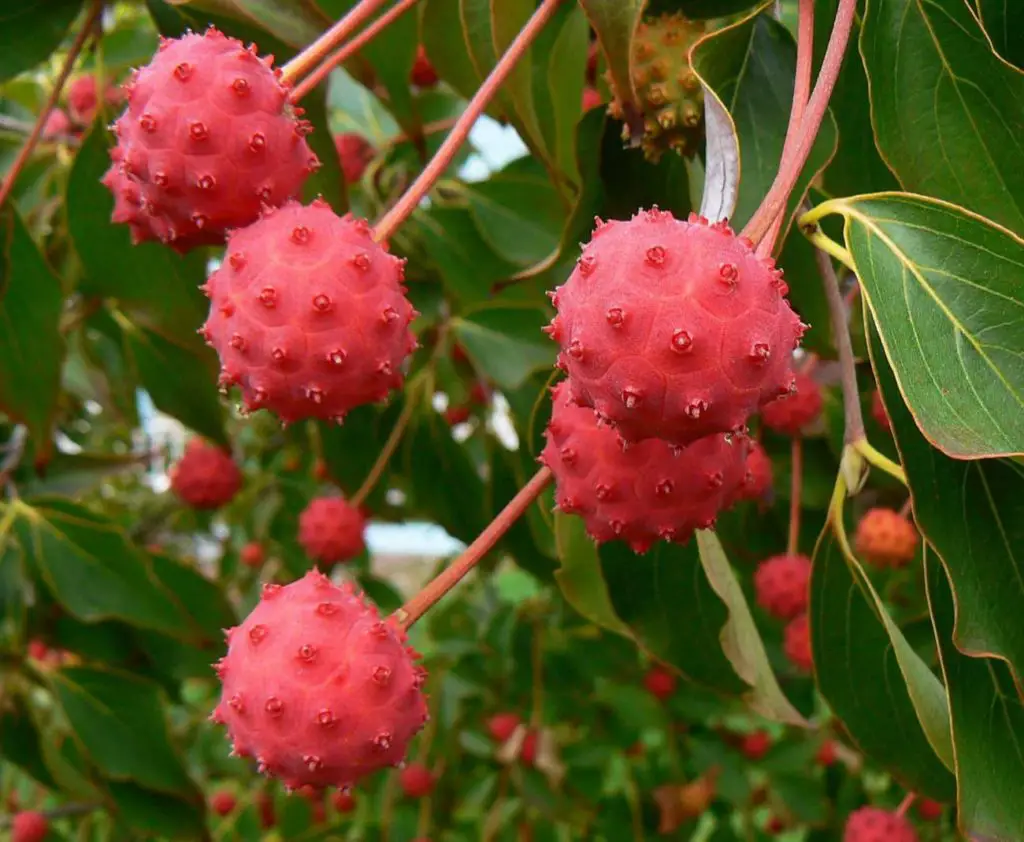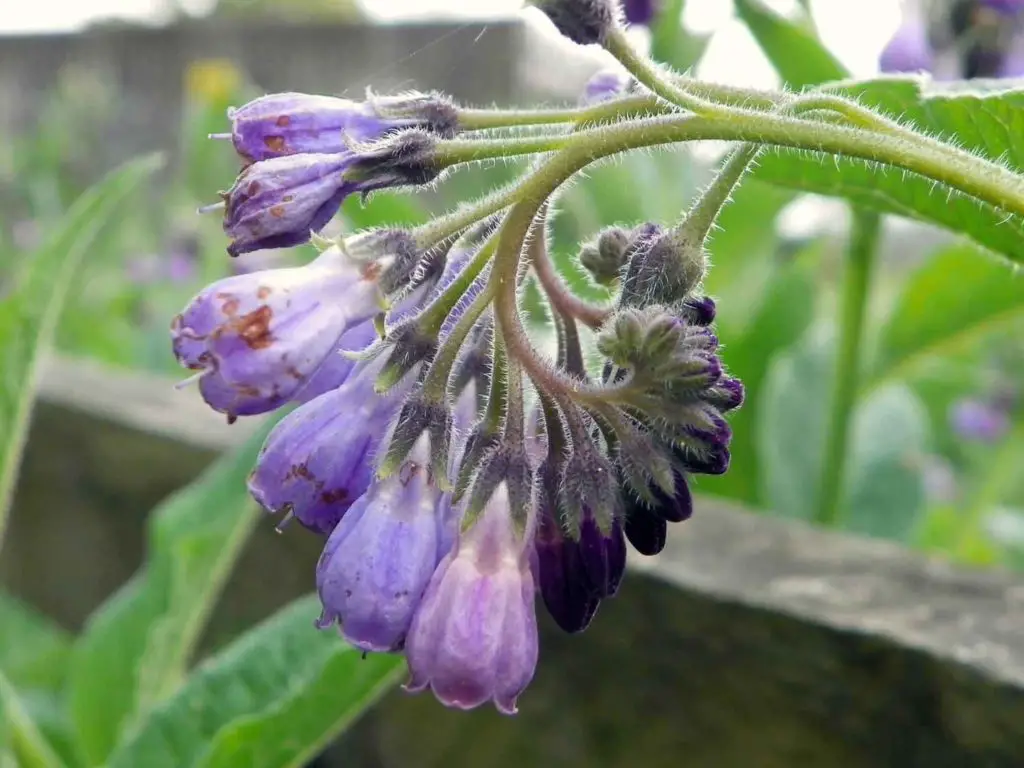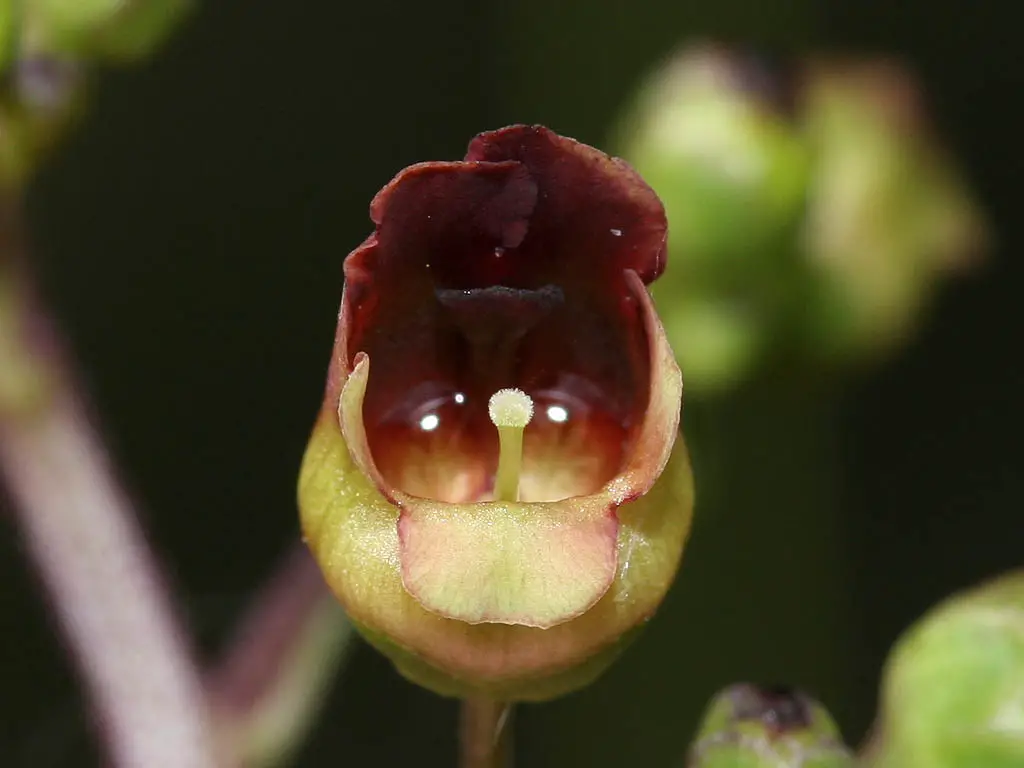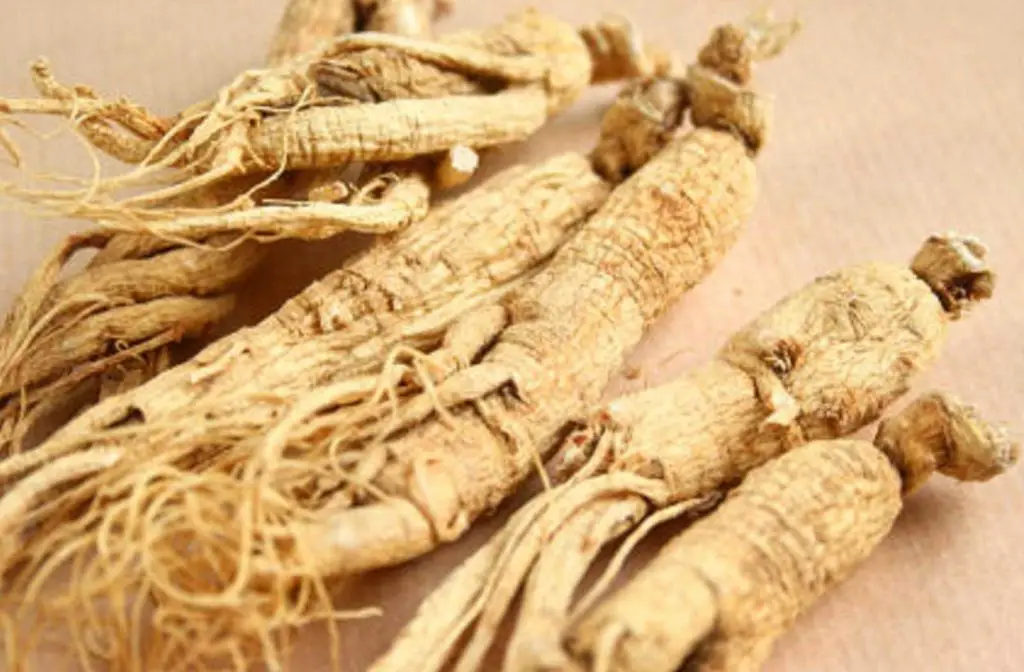What is Kousa Dogwood Fruit?
The kousa[i] (scientific name, Cornus kousa) is a small, deciduous tree native to parts of China, Korea, Japan, and Taiwan. It is often planted as an ornamental in the United States and is related to many shrubs and small trees throughout both Asia and North America. The name, “kousa,” is simply the word for the plant in Japanese. It’s also often called Japanese dogwood, Chinese dogwood, or Korean dogwood. It closely resembles the North American native, flowering dogwood (Cornus florida), but is less vulnerable to disease. The pink or white “flowers” (actually flower heads—the petal-like bracts surround a tight cluster of tiny, green flowers) are large and lovely in the late spring.
Like many dogwoods species, the kousa has an edible fruit. It is pink to red and the size and shape of a large marble. Because the fruit forms from multiple merged flowers, its surface has distinctive sections, rather like a tiny soccer ball that somehow grew cleats. The fruit, especially its sweet pulp, is often eaten fresh or made into wine in Asia. The rind is tough and somewhat bitter, but not toxic. The seeds are not toxic, either, so the whole fruit can simply be run through a blender to make a smoothy.
Kousa is used in Traditional Chinese Medicine and is a popular folk remedy for a number of conditions. Scientific research is beginning to support the idea of medical uses for both kousa fruit and leaf extracts.
Kousa Dogwood Fruit Benefits and Uses
Multiple dogwood species have been used as folk medicine, but the reputed benefits vary from one dogwood species to another. In most cases, the specific benefits attributed to Kousa by folk medicine and Traditional Chinese Medicine are not being tested through scientific research, however—instead, researchers are investigating the action of certain chemical constituents of the plants (polyphenols, anthocyanin, and corosolic acid) that are thought able to deliver other benefits.
Much of the available research involves extracts of the leaves, not of the fruit.
Weight Loss
Obesity is often thought of in overly simplistic terms; eat too much, and you will get fat—as if the human body were a merely balloon that expands when it is over-filled. Actually, adipose tissue is not a passive storage container, but rather the result of a complex biological process. When that process goes poorly for any of several possible reasons, obesity results. Obesity is a metabolic disorder that can potentially be treated medically, possibly by natural substances such as anthocyanins extracted from Kousa; at least one study has shown that an extract from Kousa leaves inhibited certain processes in cell cultures that are associated with adipose tissue growth in human bodies.
Anthocyanins are a class of red, blue, or purple pigments found in plants. They have been used as food coloring, but are antioxidant and antimicrobial, and have a number of other known or suspected health benefits. Anthocyanins have been found in the fruits of multiple dogwood species, though the exact anthocyanin profile varies from one species to the next—but kousa and flowering dogwood have identical profiles. The different anthocyanin profiles could translate into different medical benefits from different dogwood species.
Check out Maqui Berry, the richest Anthocyanin berry in existence.
Diabetes
One traditional use that is being tested for kousa is as a treatment for hyperglycemia, a dangerous symptom of diabetes. In one study, an extract of kousa leaves was applied to cultured cells, and the extract increased glucose uptake and several other processes that also suggested the extract could be used to treat Type II diabetes. The study not only supported kousa’s medical potential but also provided valuable information on the exact biochemical mechanisms by which kousa works for diabetes.
Inflammatory Bowel Disease
One study used a leaf extract of kousa on cultured cells to explore kousa’s potential as a treatment for inflammatory bowel disease, on the basis of the plant’s polyphenol content (polyphenols being another antioxidant); the results suggested kousa treatment could indeed be successful.
Inflammatory bowel disease (IBD) can be easily confused with irritable bowel syndrome (IBS) by laypeople, since the two have similar names and share their most obvious symptoms—however, the two have different causes and require different treatments[viii]. IBD also differs from celiac disease in that the latter goes away when the patient stops eating gluten. IBD is an immune system disorder in which the lining of the digestive tract becomes inflamed and damaged; depending on what parts of the digestive tract are involved, the condition may be considered either Crohn’s disease or ulcerative colitis. Several treatments exist, but have certain drawbacks.
Kousa appears able to lessen the inflammatory response in the digestive tract lining.
Cancer
In one study, five substances were isolated from kousa fruit and then tested on cultured cell lines from various human cancers; although the substances varied both in how they worked and how effective they were, all show at least some promise for treating certain cancers, and two inhibited the growth of several different types of cancer[ix].
Kousa was investigated for its cancer-fighting abilities because it is an excellent source of anthocyanins, which in general are known for their anti-cancer abilities based on in vitro studies, animal studies, and human epidemiological studies, according to one review[x]. Anthocyanins can fight cancer in several different ways, including slowing growth and reducing the tumor’s ability to trigger the growth of new blood vessels for its own use—unfortunately, anthocyanins aren’t circulated in the body, so dietary anthocyanin only protects against cancers of the digestive tract. If these substances could be delivered to other tissues, they could perhaps be used to treat or prevent other cancers.
Other substances found in Kousa are also being investigated for their anti-cancer potential. In one study in both cultured human cells and in living mice bred to develop colon cancer, treatment with corosolic acid limited tumor growth and appeared to reduce the tumors’ ability to stimulate blood vessel growth[xi].
Kousa Dogwood Fruit Dosage
At this time, research into kousa fruit as a medical treatment is still extremely preliminary—most studies have involved cultured cell lines and chemical extracts, not human or even animal test subjects, and not whole kousa fruit or whole fruit products. Recommended doses have not yet been established, nor is it even clear what the medicinal benefits of whole kousa fruit may be. The existing research simply points to the potential of the plant as medicine.
Kousa Dogwood Fruit Side Effects, Safety, Dangers and Warnings
Kousa fruit is popular in Asia for eating fresh or made into wine, and is generally recognized as safe to eat freely. There are no commonly-issued warnings. It is not a common allergen. Of course, it is possible for some individual, somewhere, to be allergic to almost anything, probably including kousa. Many plants produce small quantities of toxins that become a problem in extracts and concentrated products, and it is difficult to rule out that possibility with kousa, but no such problems have actually been recognized yet.
The same is not necessarily true of all dogwood species; in the plant world, even closely-related look-alikes can be biochemically very different. Users should research other dogwood species separately.
References:
[i] Website of the Missouri Botanical Garden. Retrieved on 13 of August, 2019.
[ii] Lloyd T. A. (2012). Kousa Dogwood, Another Urban Wonder. Wild Harvests. Retrieved on 13 August, 2019.
[iii] Khan M. I., Shin J. H., Shin T. S., Kim M. Y., Cho N. J., Kim J. D. (2018). Anthocyanins from Cornus kousa ethanolic extract attenuate obesity in association with anti-angiogenic activities in 3T3-L1 cells by down-regulating adipogeneses and lipogenesis. PloS One, 13(12).
[iv] Khoo H. E., Azlan A., Tang S. T., Lim S. M. (2017). Anthocyanidins and anthocyanins: colored pigments as food, pharmaceutical ingredients, and the potential health benefits. Food and Nutrition Research, 61(1).
[v] Vareed S. K., Reddy M. K., Schutzki R. E., Nair M. G. (2006). .Anthocyanins in Cornus alternifolia, Cornus controversa, Cornus kousa, and Cornus florida Fruits with Health Benefits Life Sciences. 78 (7).
[vi] Kim D., Park K. K., Lee S. K., Hwang J.K. (2011). Cornus kousa F. Berger ex Miquel Increases Glucose Uptate Through Activation of Peroxisome Proliferaor-Activated Receptor Y and Insulin Sensitization. Journal of Ethnopharmocology. 133(2): 803-9.
[vii] Babu D., Thapa, D., Lee J. S., Park S., Kim A. R., Kim Y. H., Yang H. C., Kim J. (2009). Inhibitory Effects of an Aqueous Extract of Cornus kousa Berg. Leaves on TNF-α-Induced Chemokine Expression and Monocyte Adhesion to Human Colonic Epithelial Cells. Archives of Pharmacal Research. 32 (1): 91-98.
[viii] What’s the Difference Between IBS and IBD? WebMD. Accessed on 14 of August, 2019.
[ix] Vareed S. K., Schutzki R.E, and Nair M. G. (2007). Lipid Peroxidation, Cyclooxygenase Enzyme and Tumor Cell Proliferation Inhibitory Compounds in Cornus kousa Fruits. Phytomedicine, 14(10): 706–709.
[x] Wang L., Stoner G.D. (2008). Anthocyanins and Their Role in Cancer Prevention. Cancer Letters, 269(2): 281-290.
[xi] Yoo K.H., Park J.H., Lee D.Y., Hwang-Bo J., Baek N.I., Chung I.S. (2015). Corosolic Acid Exhibits Anti-Angiogenic and Anti-Lymphangiogenic Effects on In Vitro Endothelial Cells and on an In Vivo CT-26 Colon Carcinoma Animal Model. Phytotherapy Research. 29(5): 714-23.






Does Kousa Dogwood berry come in supplement pill form?
Hi Jan, unfortunately, I haven’t encountered such. The closest is dried berries of Cornus Officialis – they come from the same Genus but they’re different species.